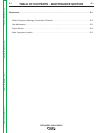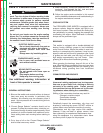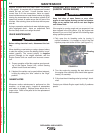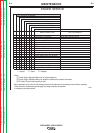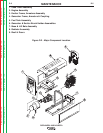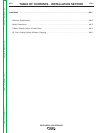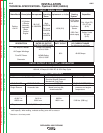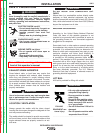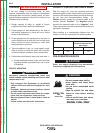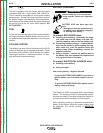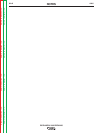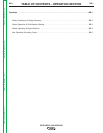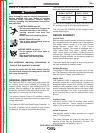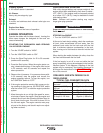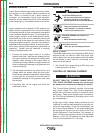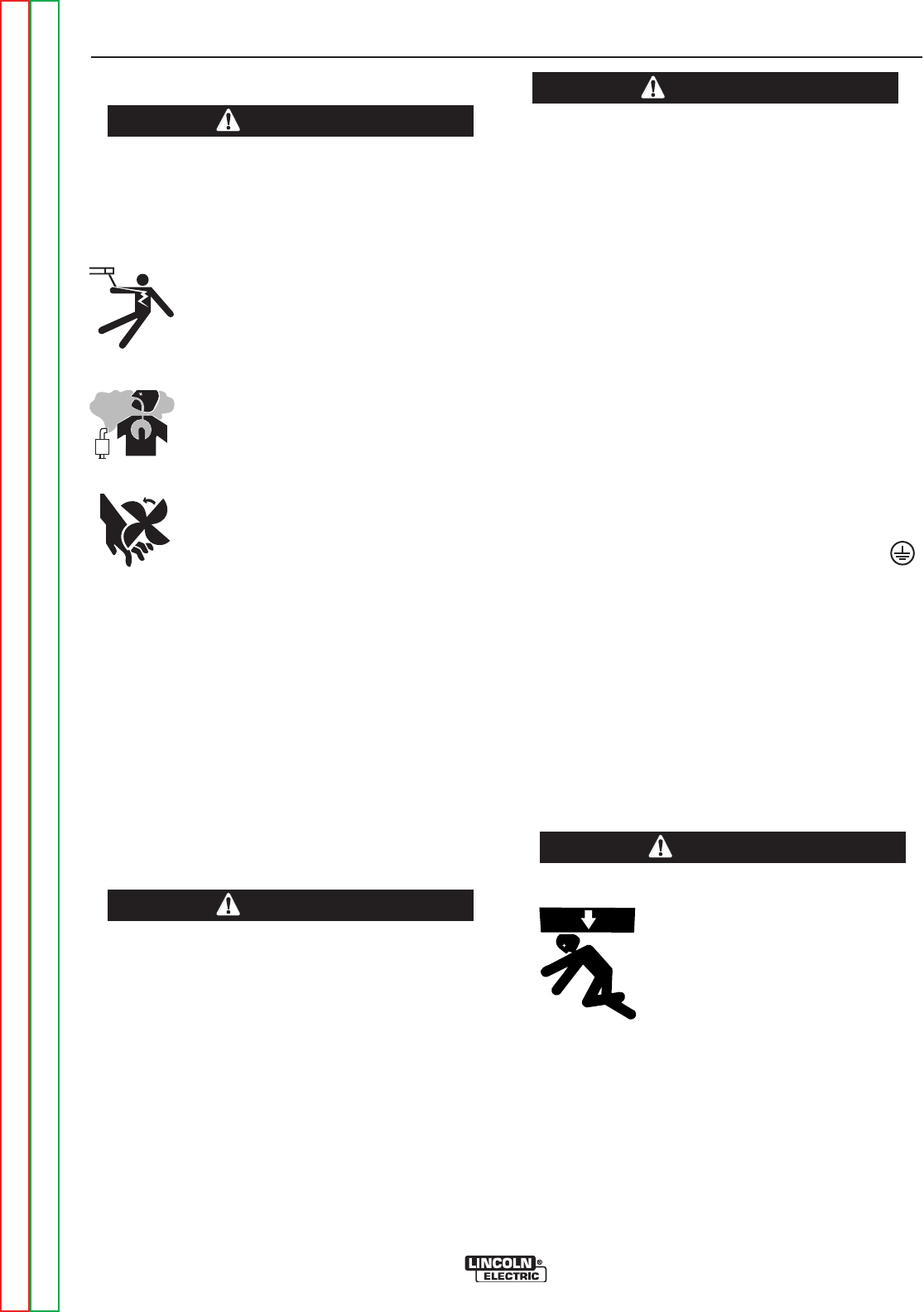
INSTALLATION
AA-3 AA-3
Do not attempt to use this equipment until you
have thoroughly read the engine manufacturerʼs
manual supplied with your welder. It includes
important safety precautions, detailed engine
starting, operating and maintenance instructions,
and parts lists.
------------------------------------------------------------------------
ELECTRIC SHOCK can kill.
• Do not touch electrically live parts or
electrode with skin or wet clothing.
• Insulate yourself from work and
ground
• Always wear dry insulating gloves.
------------------------------------------------------------------------
ENGINE EXHAUST can kill.
• Use in open, well ventilated areas or
vent exhaust outside.
------------------------------------------------------------------------
MOVING PARTS can injure.
• Do not operate with doors open or
guards off.
• Stop engine before servicing.
• Keep away from moving parts.
------------------------------------------------------------------------
See additional warning information at
front of this operatorʼs manual.
------------------------------------------------------------
WARNING
PIPELINER® 200D PERKINS
EXHAUST SPARK ARRESTER
Some federal, state, or local laws may require that
engines be equipped with exhaust spark arresters
when they are operated in certain locations where
unarrested sparks may present a fire hazard. The stan-
dard mufflers included with these welders do not qual-
ify as spark arresters. When required by local regula-
tions, suitable spark arrester must be installed and
properly maintained.
Use of an incorrect arrester may lead to engine dam-
age or performance loss. Contact the engine manu-
facturer for specific recommendations.
------------------------------------------------------------------------
LOCATION / VENTILATION
Always operate the welder with the doors closed.
Leaving the doors open changes the designed air flow
and may cause overheating.
The welder should be located to provide an unrestrict-
ed flow of clean, cool air. Also, locate the welder so that
engine exhaust fumes are properly vented to an out-
side area.
MACHINE GROUNDING
According to the United States National Electrical
Code, the frame of this portable generator is not
required to be grounded and is permitted to serve as
the grounding means for cord connected equipment
plugged into its receptacle.
Some state, local, or other codes or unusual operating
circumstances may require the machine frame to be
grounded. It is recommended that you determine the
extent to which such requirements may apply to your
particular situation and follow them explicitly. A
machine grounding stud marked with the symbol
is provided on the welding generator frame foot. In
general, if the machine is to be grounded it should be
connected with a #8 or larger copper wire to a solid
earth ground such as a metal water pipe going into the
ground for at least ten feet and having no insulated
joints, or to the metal framework of a building which
has been effectively grounded. The U.S. National
Electrical Code lists a number of alternate means of
grounding electrical equipment.
LIFT BAIL
A lift bail is provided for lifting with a hoist.
SAFETY PRECAUTIONS
CAUTION
DO NOT MOUNT OVER COMBUSTIBLE SUR-
FACES.
Where there is a combustible surface directly under
stationary or fixed electrical equipment, the surface
shall be covered with a steel plate at least .06”(1.6mm)
thick, which shall extend not more than 5.90”(150mm)
beyond the equipment on all side.
------------------------------------------------------------------------
CAUTION
• Lift only with equipment of
adequate lifting capacity.
• Be sure machine is stable
when lifting.
• Do not lift this machine using
lift bale if it is equipped with a
heavy accessory such as trail-
er or gas cylinder.
FALLING • Do not lift machine if lift bail is
EQUIPMENT can damaged.
cause injury. • Do not operate machine while
suspended from lift bail.
------------------------------------------------------------------------
WARNING
Return to Section TOC Return to Section TOC Return to Section TOC Return to Section TOC
Return to Master TOC Return to Master TOC Return to Master TOC Return to Master TOC



